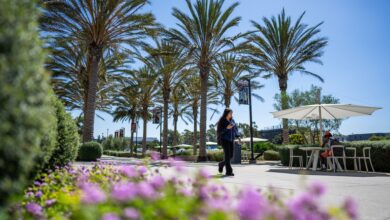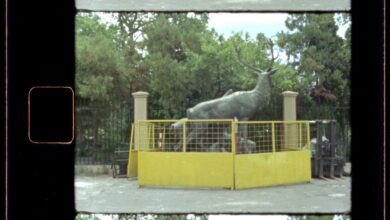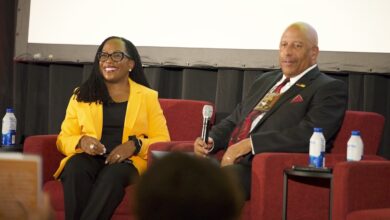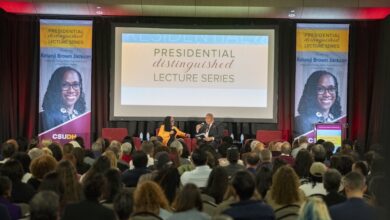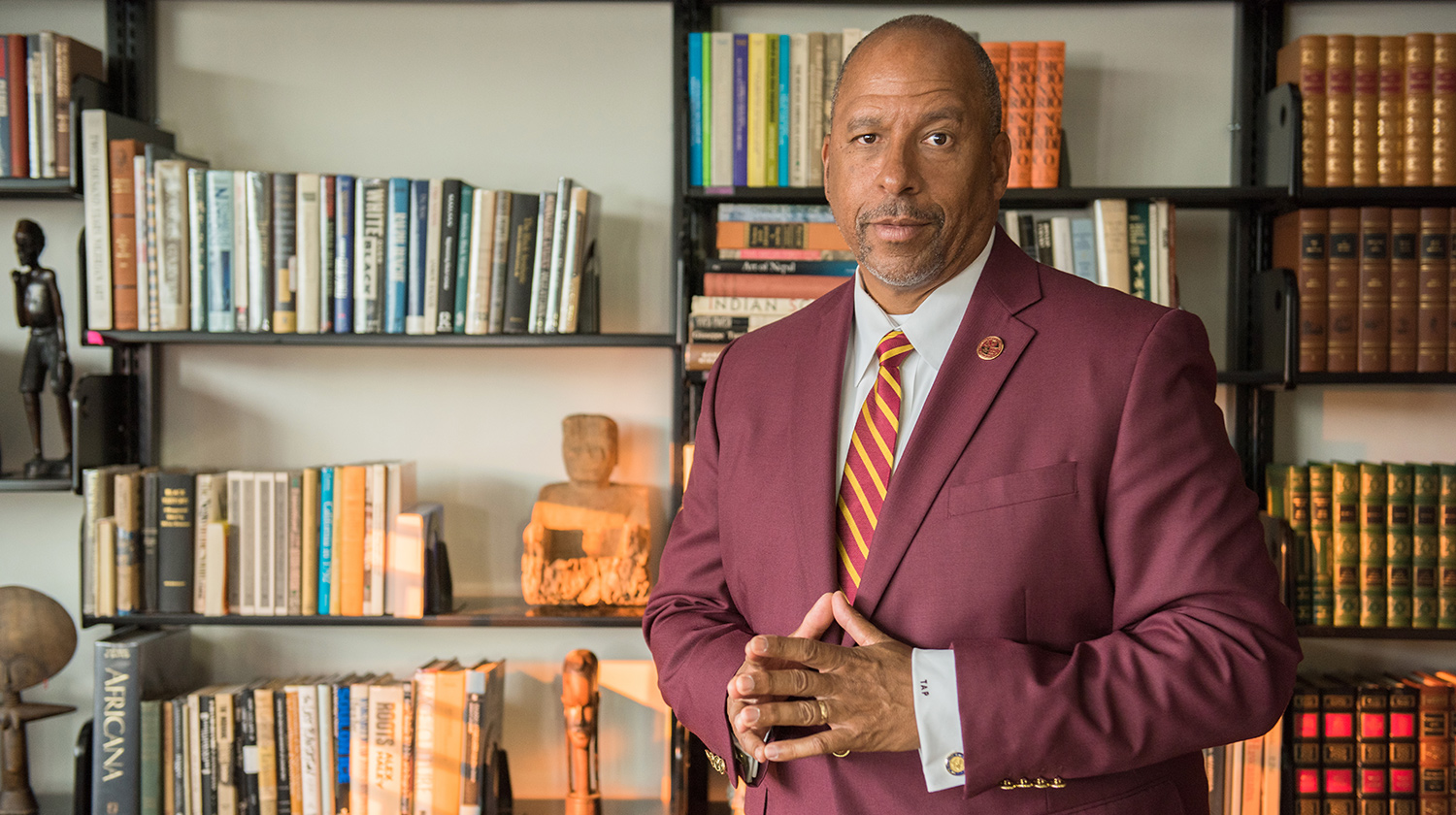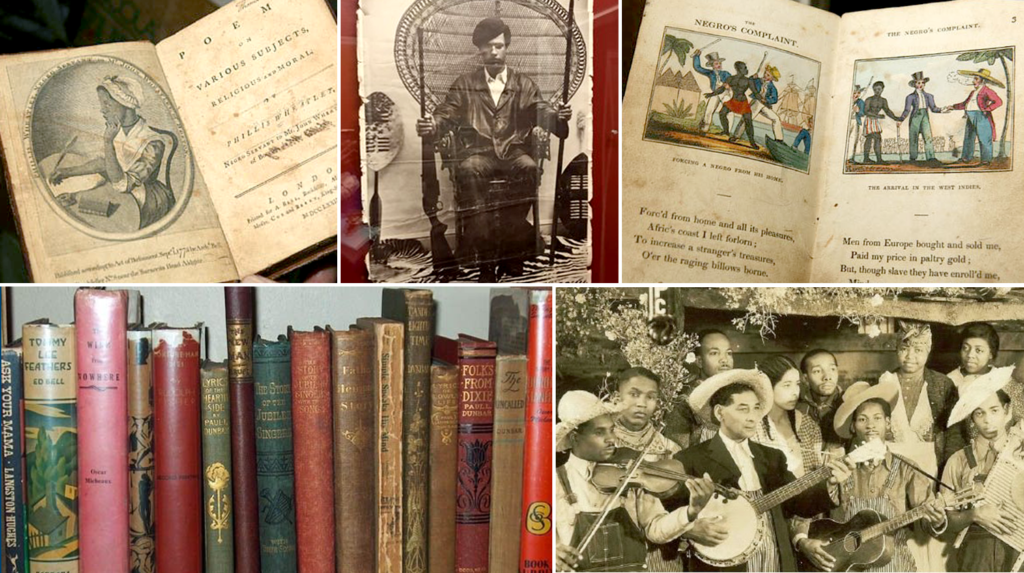 (Carson, CA) – California State University, Dominguez Hills (CSUDH) signed a historic agreement with the Mayme A. Clayton Library and Museum (MCLM) board of directors to house the Mayme A. Clayton Collection of African American History and Culture on campus in the Gerth Archives and Special Collections. The university intends to begin immediately cataloguing and archiving the collection so that it is more visible and accessible to the public.
(Carson, CA) – California State University, Dominguez Hills (CSUDH) signed a historic agreement with the Mayme A. Clayton Library and Museum (MCLM) board of directors to house the Mayme A. Clayton Collection of African American History and Culture on campus in the Gerth Archives and Special Collections. The university intends to begin immediately cataloguing and archiving the collection so that it is more visible and accessible to the public.
The collection contains more than 2 million rare books, films, documents, photographs, artifacts, and works of art related to the history and culture of African Americans in the United States, with a significant focus on Southern California and the American West. It had been housed since 2006 in the former Los Angeles County Superior Courthouse in Culver City.
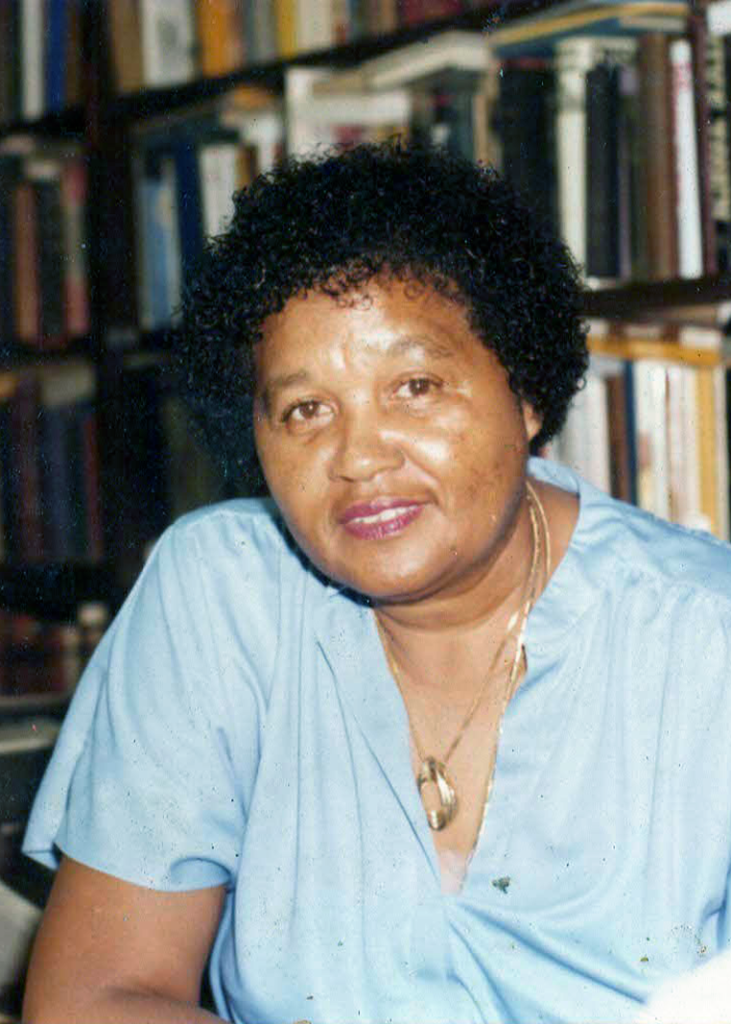
CSUDH President Thomas A. Parham said, “ Anchoring the collection at the CSUDH campus is a profound statement regarding the ability of a community entity to entrust a valued family heirloom to an institution of higher education.”
“We are honored to announce this historic partnership, and look forward to collaborating with the MCLM board of directors to provide the public one of the most important collections of materials by and about Americans of African descent,” continued Parham. “Owing to the social justice roots of the campus and its demographic makeup, we believe that there could be no better place or steward for the collection than this university.”
The MCLM was originally founded by Mayme Agnew Clayton, Ph.D., (1923-2006) in 1975 as the Western States Black Research Center, which she had set up as a library for local residents in a renovated three-room garage at the rear of her home in the Los Angeles community of West Adams. Clayton–a university librarian, collector, and historian–amassed the collection over 40 years.
Clayton was prescient in her view of the importance of collecting and preserving African American history and culture. At a young age, she recognized how critical the contributions of African Americans were in “forming the tapestry of what would become American history,” says MCLM Interim Executive Director Steven Fisher. However, she also understood that these stories and records were vulnerable to being lost, destroyed, or retold in a way that did not attribute the appropriate credits to where they belonged.
“In times like now, when we are reminded that Black lives can still be easily marginalized and under-valued, we are also reminded of the work of organizations that seek to preserve this information and inform the public of these histories, and seek to educate in a comprehensive and truthful way,” Fisher added. “CSUDH and MCLM both believe in the power of education and its transformative ability to inspire and change trajectories in life. Our partnership will only enhance what we would have been able to accomplish alone to the benefit of everyone.”
Parham envisions CSUDH as a model urban university where the issues of race and culture become topics of critical discourse and analysis. “Among the other collections at CSUDH highlighting the cultural heritage of African Americans, elevating the visibility of this collection will be an important institutional anchor that helps to crystallize our vision, and enables the MCLM to more broadly share the critical knowledge and lessons contained within,” Parham said.
Los Angeles County Supervisor Mark Ridley-Thomas was a champion for the preservation of the collection by facilitating and supporting the agreement with CSUDH.
“This collection of African American history and culture is a vital thread in the fabric of Los Angeles County and our nation as whole,” Supervisor Ridley-Thomas said. “With Cal State Dominguez Hills serving as a responsible steward for the collection, future generations will be able to know the joy, excitement and inspiration of seeing these artifacts and learning from them,” he added. “I cannot think of a better way to honor Dr. Mayme Clayton’s vision and legacy–who I had the pleasure of knowing–than to return her collection to their university roots.”
Commenting on the importance of this collection, CSUDH’s University Library Dean Stephanie Brasley explained, “The Mayme A. Clayton Collection is particularly noteworthy in this current climate. When individuals have access to materials that invite them to challenge their biases and assumptions and enables them to enhance their knowledge base about people of different cultures, the collection then serves as an empowering community asset.”

